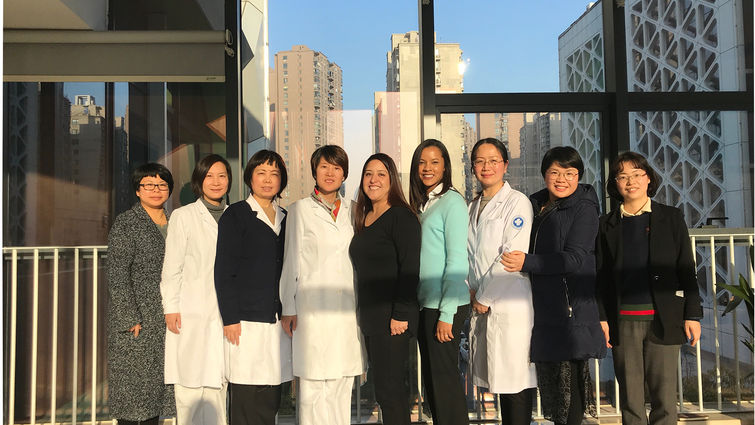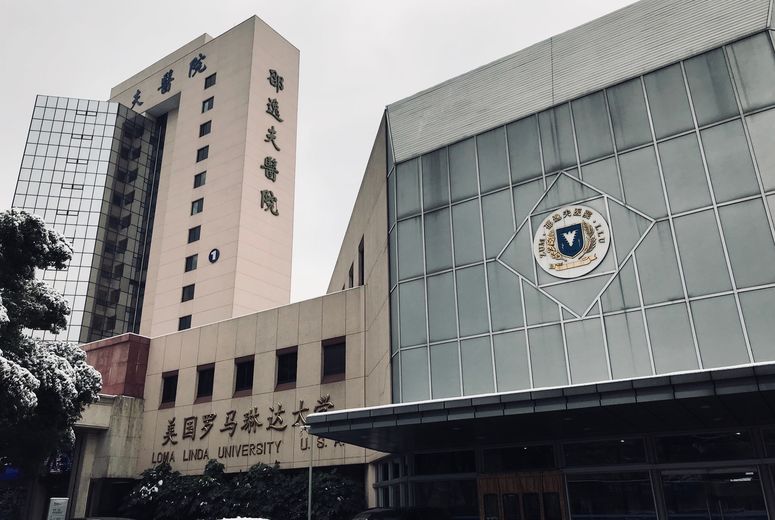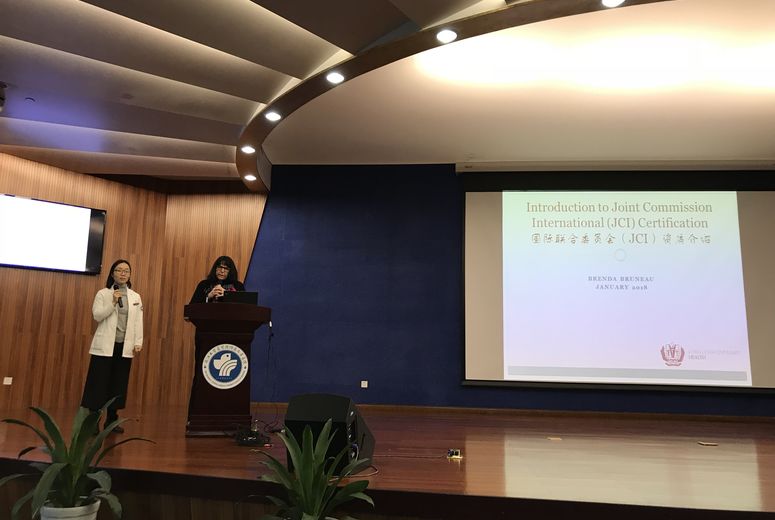
Two nurse leadership management residents saw firsthand how Loma Linda University Health has positively influenced the quality of patient care at partner site Sir Run Run Shaw Hospital (SRRSH) in Hangzhou, China.
In January of 2018, Crystal Robinson, RN and Silvi Cuizon, RN, traveled to SRRSH to assist in lectures and patient safety evaluations. The trip fulfilled an elective international rotation requirement for the resident’s Nurse Leadership Residency program.
Established in 2013, the Nurse Leadership Residency is a two-year program that equips bedside nurses with the knowledge and skills necessary to apply for careers in nurse leadership. Applicants must have a minimum of three years of acute care nursing experience, a current RN license, and be willing to enter into a graduate degree program. Benefits include a full-time salary, competitive health benefits and education assistance.
Robinson and Cuizon are two of eight residents in the program’s third cohort. The pair was accompanied to China by Brenda Bruneau, RN, MBA, assistant vice president for quality and patient safety at Loma Linda University Health.
Bruneau, an exemplar in quality and patient safety, has worked at the Loma Linda University Medical Center since 1990. An LLU nursing school graduate, Bruneau spent 23 years of her career in ICU education and operations. She served as chief of quality and patient safety from 2013-2017 and last year was promoted to assistant vice president.
According to Bruneau, SRRSH became the first public hospital in China to receive Joint Commission International (JCI) accreditation, in 2006.
JCI, the oldest and largest standards-setting and accrediting body in the United States and world-wide, is the recognized leader in international healthcare accreditation. It works with health organizations to achieve peak performance in patient care and provide institutions that receive their survey certification a global Seal of Approval.
In an effort to help SRRSH maintain “continual survey readiness,” the Global Health Institute at Loma Linda University Health recruited Bruneau as a quality assurance consultant — preparing the hospital for their fifth Joint Commission International accreditation.
Loma Linda University Health first became involved with the development of SRRSH more than 30 years ago after philanthropist and businessman, Sir Run Run Shaw asked the Seventh-day Adventist Church to partner with him to a build and run a modern, western-influenced hospital. The hospital serves approximately 2.6 million patients annually and has two campuses: Qingchun and Xiasha. The health system has a total of 2,400 patient beds, 32 clinical specialties, 77 nursing units and nine ancillary departments.
According to SRRSH vice president, Limin Liu, MD, Sir Run Run Shaw Hospital pioneered the “Shaw Hospital Model,” a unique approach to healthcare that combines Chinese cultural influences with western healthcare management, education and training principles.
“Loma Linda University Health is like a seed that has been planted in Chinese soil,” Liu said. “Consultations with LLUH are how we water our plant, and it continues to grow into a flourishing, fruit-bearing tree.”
While at SRRSH, Bruneau and the nurse leadership resident duo performed a series of mock “tracers,” which is the key survey assessment method used by Joint Commission International surveyors. Its purpose is to assess a healthcare organization’s compliance with certification standards.
The LLUH volunteers identified key areas of practice improvement as well as several areas of exemplary practice and gave recommendations as to how to improve or maintain them.
In addition, the residents reported that they saw a low nurse turnover rate at SRRSH. During one of their evaluation discussions, they had an opportunity to ask nurse leadership at the hospital as to why that might be.
Cuizon quoted a nurse manager as saying, “We are encouraged to practice Loma Linda University Health’s model of compassionate care, unlike other hospitals in our country. We take time to connect with patients and their families and it makes a difference.
“Patients are happier, and so are our nurses.”


